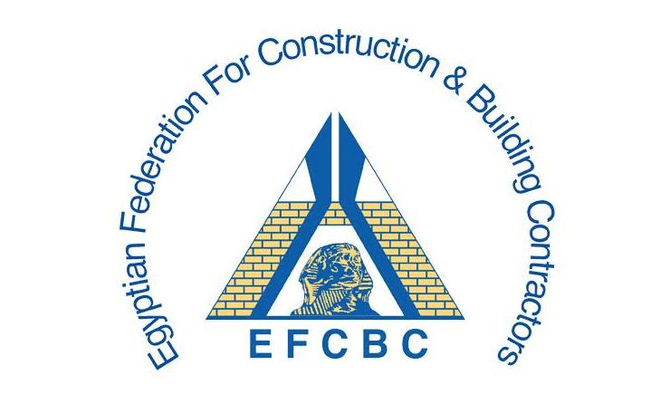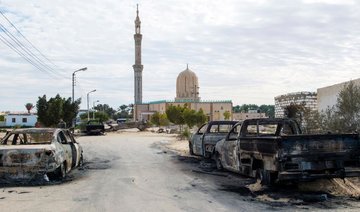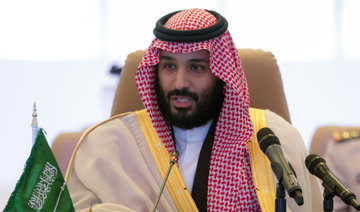CAIRO: The Egyptian Federation for Construction and Building Contractors will announce a new initiative on Wednesday to develop Egypt’s North Sinai region, promising to rebuild Al-Rawda village, the location of Friday’s mosque attack which left 300 dead.
The federation has reportedly invited Egypt’s top 50 construction companies to contribute to development projects in the region under the slogan “Development and Construction Against Terrorism,” a local news report said.
Federation Chairman Hassan Abdel Aziz told the Youm7 newspaper that some companies had already announced their intention to reconstruct some houses in the village and rebuild the attacked mosque.
Hisham Yousry, the federation’s secretary-general, was quoted as saying that the federation aims to support the army, police and people of North Sinai to counter terrorism with real development.
North Sinai has long been seen as a region that successive governments have neglected; a lack of services and poor education and employment opportunities mean the region could potentially become a new gathering point for extremists, following the fall of Daesh in Syria and Iraq, analysts told Arab News.
“The sustained insurgency in the area began with the downfall of former President Hosni Mubarak in 2011,” Justin Dargin, Middle East expert at the University of Oxford, told Arab News. “The diminished security environment was compounded by the chaotic aftermath of the Egyptian revolution that allowed all manner of groups to operate with near impunity.”
There is a long history of banditry and smuggling in the Sinai region, Dargin added.
“The security stipulations in the Egypt-Israel peace treaty of 1979 led to a weak security presence in the region which allowed weapons and drug smuggling to flourish,” he explained. “The area, due to sparse resources and general government neglect, provided a fertile ground for militant ideologies to take root and grow.”
Dargin claimed that the region’s current militancy began with Bedouin tribesmen disillusioned with the central government.
“The grievances of the Bedouin melded with the general upswing in Islamism which spread across the region during the Arab Spring. Additionally, the situation in Sinai became more combustible due to the influx of foreign fighters and the forging of an operational collaboration between jihadist groups in Sinai and Gaza-based groups.”
The government’s apparent plan to make development a centerpiece of the fight against terrorism in the region “can make a difference,” one analyst said.
“Economic and human development can change the tide of violent extremism when connected with education and other programs. Poverty and unemployment breed frustration and anger,” Paul Sullivan, a Middle East expert at Georgetown University, told Arab News. “Giving the youth of the Sinai hope for their futures with a developing region can make a difference.”
However, he warned, “This takes time. One cannot just build new basketball courts and work places and expect immediate miracles.
“The region should have been a focus of human and economic development for decades,” he continued. “This is, sadly, yet another example of what is found globally. Development aid comes late in the process.”
Said Sadek, a political sociology professor in Cairo, is skeptical about whether development projects can succeed in North Sinai, given the current environment there.
“North Sinai is in dire need of development, but I have doubts about whether this can be achieved if the security situation is not stable,” Sadek told Arab News. “How can this be done during a time of war? How can you establish projects if even soldiers cannot protect themselves in this volatile region?”
And even if the security situation improves, Sadek added, there will be another challenge, rooted in Sinai’s long tradition of smuggling weapons and other items across the border to the Gaza Strip.
“Development projects will take years to show results,” he said. “And given that smuggling has been thriving in the region for years, it will be challenging to convince the people of Sinai to opt for regular jobs that would offer less money.”
North Sinai development plan to combat terrorism
North Sinai development plan to combat terrorism

Parliamentary Foreign Vice-Minister Matsumoto to visit Saudi Arabia, Jordan

TOKYO: Japan’s Parliamentary Vice-Minister for Foreign Affairs Matsumoto Hisashi will visit the Kingdom of Saudi Arabia and Jordan from Jan. 11 to 15, the foreign ministry said on Friday.
During the visit, Matsumoto is scheduled to exchange views with government officials of Saudi Arabia and Jordan on bilateral relations as well as regional and international situations.
Matsumoto is scheduled to arrive in Riyadh on Jan. 12, according to the ministry.
A version of this article appeared on Arab News Japan.
Lebanon PM to visit new Damascus ruler on Saturday

- Lebanon’s Prime Minister Najib Mikati will on Saturday make his first official trip to neighboring Syria since the fall of president Bashar Assad, his office told AFP
Mikati’s office said Friday the trip came at the invitation of the country’s new de facto leader Ahmed Al-Sharaa during a phone call last week.
Syria imposed new restrictions on the entry of Lebanese citizens last week, two security sources have told AFP, following what the Lebanese army said was a border skirmish with unnamed armed Syrians.
Lebanese nationals had previously been allowed into Syria without a visa, using just their passport or ID card.
Lebanon’s eastern border is porous and known for smuggling.
Lebanese Shiite group Hezbollah supported Assad with fighters during Syria’s civil war.
But the Iran-backed movement has been weakened after a war with Israel killed its long-time leader and Islamist-led rebels seized Damascus last month.
Lebanese lawmakers elected the country’s army chief Joseph Aoun as president on Thursday, ending a vacancy of more than two years that critics blamed on Hezbollah.
For three decades under the Assad clan, Syria was the dominant power in Lebanon after intervening in its 1975-1990 civil war.
Syria eventually withdrew its troops in 2005 under international pressure after the assassination of Lebanese ex-prime minister Rafic Hariri.
UN says 3 million Sudan children facing acute malnutrition

- Famine has already gripped five areas across Sudan, according to a report last month
- Sudan has endured 20 months of war between the army and the paramilitary forces
PORT SUDAN, Sudan: An estimated 3.2 million children under the age of five are expected to face acute malnutrition this year in war-torn Sudan, according to the United Nations Children’s Fund (UNICEF).
“Of this number, around 772,000 children are expected to suffer from severe acute malnutrition,” Eva Hinds, UNICEF Sudan’s Head of Advocacy and Communication, told AFP late on Thursday.
Famine has already gripped five areas across Sudan, according to a report last month by the Integrated Food Security Phase Classification (IPC), a UN-backed assessment.
Sudan has endured 20 months of war between the army and the paramilitary Rapid Support Forces (RSF), killing tens of thousands and, according to the United Nations, uprooting 12 million in the world’s largest displacement crisis.
Confirming to AFP that 3.2 million children are currently expected to face acute malnutrition, Hinds said “the number of severely malnourished children increased from an estimated 730,000 in 2024 to over 770,000 in 2025.”
The IPC expects famine to expand to five more parts of Sudan’s western Darfur region by May — a vast area that has seen some of the conflict’s worst violence. A further 17 areas in western and central Sudan are also at risk of famine, it said.
“Without immediate, unhindered humanitarian access facilitating a significant scale-up of a multisectoral response, malnutrition is likely to increase in these areas,” Hinds warned.
Sudan’s army-aligned government strongly rejected the IPC findings, while aid agencies complain that access is blocked by bureaucratic hurdles and ongoing violence.
In October, experts appointed by the United Nations Human Rights Council accused both sides of using “starvation tactics.”
On Tuesday the United States determined that the RSF had “committed genocide” and imposed sanctions on the paramilitary group’s leader.
Across the country, more than 24.6 million people — around half the population — face “high levels of acute food insecurity,” according to IPC, which said: “Only a ceasefire can reduce the risk of famine spreading further.”
Turkiye says France must take back its militants from Syria

- Ankara is threatening military action against Kurdish fighters in the northeast
- Turkiye considers the Kurdish-led Syrian Democratic Forces as linked to its domestic nemesis
ISTANBUL: France must take back its militant nationals from Syria, Turkiye’s top diplomat said Friday, insisting Washington was its only interlocutor for developments in the northeast where Ankara is threatening military action against Kurdish fighters.
Foreign Minister Hakan Fidan insisted Turkiye’s only aim was to ensure “stability” in Syria after the toppling of strongman Bashar Assad.
In its sights are the Kurdish-led Syrian Democratic Forces (SDF) which have been working with the United States for the past decade to fight Daesh group militants.
Turkiye considers the group as linked to its domestic nemesis, the Kurdistan Workers Party (PKK).
The PKK has waged a decades-long insurgency in Turkiye and is considered a terror organization by both Turkiye and the US.
The US is currently leading talks to head off a Turkish offensive in the area.
“The US is our only counterpart... Frankly we don’t take into account countries that try to advance their own interests in Syria by hiding behind US power,” he said.
His remarks were widely understood to be a reference to France, which is part of an international coalition to prevent a militant resurgence in the area.
Asked about the possibility of a French-US troop deployment in northeast Syria, he said France’s main concern should be to take back its nationals who have been jailed there in connection with militant activity.
“If France had anything to do, it should take its own citizens, bring them to its own prisons and judge them,” he said.
Lebanese caretaker PM says country to begin disarming south Litani to ensure state presence

- Najib Mikati: ‘We are in a new phase – in this new phase, we will start with south Lebanon and south Litani’
DUBAI: Lebanese caretaker Prime Minister Najib Mikati said on Friday that the state will begin disarming southern Lebanon, particularly the south Litani region, to establish its presence across the country.
“We are in a new phase – in this new phase, we will start with south Lebanon and south Litani specifically in order to pull weapons so that the state can be present across Lebanese territory,” Mikati said.




















